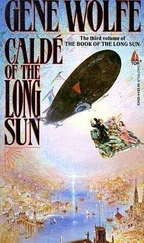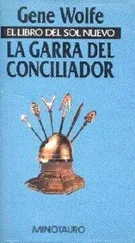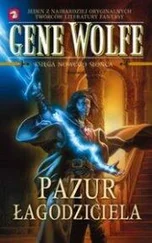Gene Wolfe - Free Live Free
Здесь есть возможность читать онлайн «Gene Wolfe - Free Live Free» весь текст электронной книги совершенно бесплатно (целиком полную версию без сокращений). В некоторых случаях можно слушать аудио, скачать через торрент в формате fb2 и присутствует краткое содержание. Жанр: Фантастика и фэнтези, на английском языке. Описание произведения, (предисловие) а так же отзывы посетителей доступны на портале библиотеки ЛибКат.
- Название:Free Live Free
- Автор:
- Жанр:
- Год:неизвестен
- ISBN:нет данных
- Рейтинг книги:3 / 5. Голосов: 1
-
Избранное:Добавить в избранное
- Отзывы:
-
Ваша оценка:
- 60
- 1
- 2
- 3
- 4
- 5
Free Live Free: краткое содержание, описание и аннотация
Предлагаем к чтению аннотацию, описание, краткое содержание или предисловие (зависит от того, что написал сам автор книги «Free Live Free»). Если вы не нашли необходимую информацию о книге — напишите в комментариях, мы постараемся отыскать её.
Free Live Free — читать онлайн бесплатно полную книгу (весь текст) целиком
Ниже представлен текст книги, разбитый по страницам. Система сохранения места последней прочитанной страницы, позволяет с удобством читать онлайн бесплатно книгу «Free Live Free», без необходимости каждый раз заново искать на чём Вы остановились. Поставьте закладку, и сможете в любой момент перейти на страницу, на которой закончили чтение.
Интервал:
Закладка:
“What do you think they have to complain about?” Stubb asked, stepping inside.
The room was not a living room, a sitting room, a parlor, or even a bedroom. It seemed half warehouse and half shop; there were stacks of queer clothing, masks hanging from the ceiling, and painted tubs, cabinets, and chests.
With startling agility, the clown sprang to the top of a coffin too theatrically coffin-like to be real. “I’m sorry there’s no place for you to sit,” he said. “Perhaps you can find somewhere.”
“I’ll stand,” Stubb told him. “I’ve been sitting down a lot lately.”
“What do they say?”
“Your neighbors? I think you know.”
“Of course. Get that clown out of here! Dissolve him like a dream! He’s a menace to society.” The clown pulled out a red handkerchief and pretended to blow his rubber nose. A paper butterfly propelled by a rubber band fluttered from the handkerchief and circled the room, blundering into woolen sausages and gargantuan shoes painted to look like feet.
“What’s your name?” Stubb asked.
“Nimo. Nimo the Clown.”
“Swell, Nimo. What do people call you when you’re not wearing that makeup?”
“You understand, don’t you? At least a little bit. They call me Richard A. Chester—that’s my name when I’m asleep.”
“Sure, I understand, Nimo. What does Richard A. Chester do for a living? If you don’t mind telling me.”
“Nothing,” the clown said. He used his thumbs and forefingers to make a circle. “Nothing at all.”
“He just sort of hangs around?”
“That’s right!” The clown smiled broadly and clapped his hands, delighted. “And he shops for me, and sometimes he eats for me. And he sleeps for me.”
“I don’t suppose he was hanging around out on the street last night, was he? Say, sometime between six and nine?”
“I doubt it—it was too cold. But you’d have to ask him.”
“Ask Dick?”
“Ask Richard. He doesn’t like being called Dick.”
“I’m for him. I never liked it much either. I guess if I was to come back later today I might be able to talk to him?”
“You might.”
“Maybe I will, but while I got you here, Nimo, there’s something I want to ask you. You know the house four doors down, the one they’re wrecking?”
The clown nodded.
“Is there anything you can tell me about it?”
The clown nodded again. “They don’t have any children.”
And Now The News
The newsstand was so narrow it scarcely seemed a store at all. It squeezed between a snack bar and a dry cleaner’s as though someone ignorant of the ways of commerce had set out, given a trifle of waste space and a little money, to imitate an actual store. One felt that only very thin magazines, magazines filled entirely with pictures of thin, naked brunettes in the arms of hairy men, could be sold there, that only the thin papers (dated two months back) of little, one-horse towns and the thin, foreign-language weeklies of obscure Eastern European nationalities could ever be hung from the clips of its festoons of picture wire, hung beside the lavender and rose tip sheets for the horse races, the fly-spotted Gypsy Dream Keys for the numbers game. It smelled of coal smoke, printers ink, and mold.
Majewski sidled in, shoulders turned so he would not scrape the magazines from the walls, not overturn the thick stacks of the New York Daily News and the Chicago Sun-Times. “He in there?” he asked the old man who sat in the back of the store.
“Is who in there?”
“You know damn well who I mean. Barney. I want to see him.”
The old man shook his head. “He’s got somebody with him.”
The newsstand grew darker as it crept away from the street, illuminated at first with bare bulbs hanging from bare wires and then with nothing, so that the rearmost wall, where the old man sat tilted in his chair, seemed black as ink. A voice came from the blackness now, hearty but muffled. “Let him in. It’s okay.”
Resignedly, the old man moved his chair to one side. Majewski turned the knob and stepped through.
The room was no wider than the newsstand, but brightly lit. It held an old wooden desk with an old wooden swivel chair behind it, a single, hard-looking, straight-backed chair, a small safe, and two men.
The larger of these leaned against the wall. He had a round, ruddy, freckled face, and he wore a police uniform. The smaller sat behind the desk. His face was dark, and he had a darker mustache mixed of black and gray.
“Nothing to worry about,” the policeman said. “We’ve done our business, and I was just going. What’s your name, son?” He was no older than Majewski.
Majewski looked at the man behind the desk, who nodded. “Joe Majewski,” Majewski said.
“And you’re already a bellhop at the Consort.” The policeman looked at the red uniform cap Majewski wore with his overcoat and nodded approvingly. “You live around here, Joe?”
Majewski shook his head. The dark man behind the desk said, “I knew where he lives.”
“I bet you do. What do you need the money for, Joe? Pay off your bookie?”
“Make the payment on my TV. If I don’t give them something pretty soon, they’ll take back my set.”
“How about that. Well, at least it keeps you off the streets, huh?” The policeman straightened up and reached for the doorknob. “See you around, Barney.”
“So long, Evans.”
“What was that about?” Majewski asked as the door closed.
“What do you think it was about? I got to operate, don’t I? What the hell do you think I do with the interest you pay, send my dog to college? I got to pay off the precinct, I got to pay off the juice squad, I got to pay off my alderman. That was precinct. Don’t ask how much.”
“How much?”
“Don’t ask. One hell of a lot. If I didn’t have the magazines out front, I couldn’t make it. And that son of a bitch will cop Penthouse as sure as hell. How much do you want?”
“Seventy.”
“That all?”
Majewski nodded. “I get paid tomorrow, Barney, but I got to have it before I go to work today. You know I’m good for it.”
“Okay. Five for four until the end of next week. That’ll be eighty-eight. If you can’t make it, five for four at the end of the next week. That’ll be a hundred and ten. Don’t let it go no farther than that.”
Majewski nodded again.
The dark man took a thick billfold from his coat and gave him a fifty and a twenty, neither new. “I trust you, Joe,” he said. “Don’t let me down. I got so many collections going now it’s killing me.”
“See you next Saturday.”
“That’s the spirit.”
Majewski turned the knob and backed through the door, closing it after him. The old man still sat with his chair tilted, a limp, sweat-stained gray hat—an old man’s hat—pulled over his eyes. A short, brisk girl was peering and poking among the magazines. She glanced at Majewski, then looked again in what actors call a double take. “I know you!” she exclaimed.
“Well, lady, you’re one up on me,” he told her.
“Last night when I came into the Consort, you asked me if I was Miss Garth, or if I knew who she was. And I remembered the name because later I met Candy Garth, and she seemed to know Madame Serpentina. Why were you looking for her? For Miss Garth, I mean.”
“I don’t remember,” Majewski said. He made no effort to push past her.
The girl stared at him for a moment, then fumbled in her purse and produced a dollar.
Majewski allowed himself a slight grin. “Yeah,” he said. “It’s coming back to me.”
“Was it Madame Serpentina who told you to look for Miss Garth?”
Читать дальшеИнтервал:
Закладка:
Похожие книги на «Free Live Free»
Представляем Вашему вниманию похожие книги на «Free Live Free» списком для выбора. Мы отобрали схожую по названию и смыслу литературу в надежде предоставить читателям больше вариантов отыскать новые, интересные, ещё непрочитанные произведения.
Обсуждение, отзывы о книге «Free Live Free» и просто собственные мнения читателей. Оставьте ваши комментарии, напишите, что Вы думаете о произведении, его смысле или главных героях. Укажите что конкретно понравилось, а что нет, и почему Вы так считаете.










